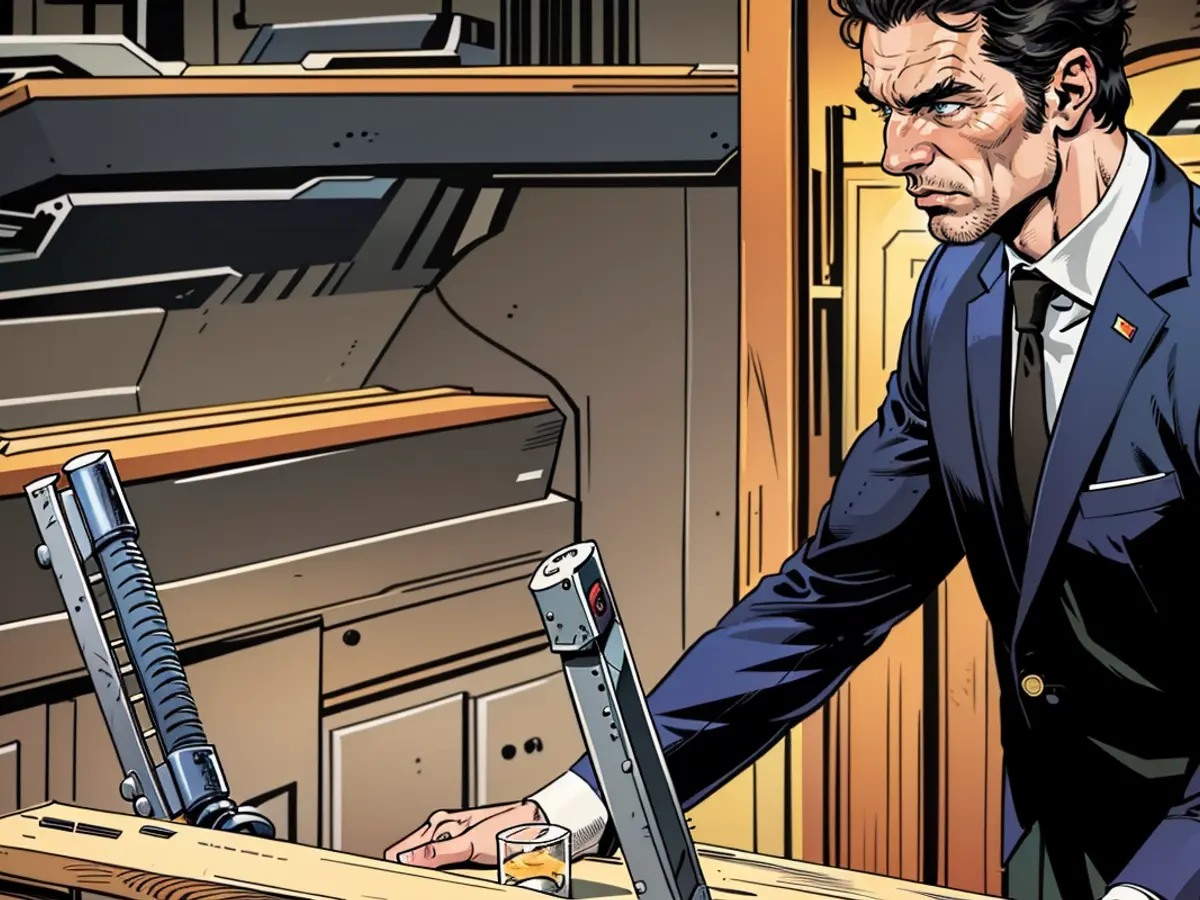Germany's Response to Solingen Attack: How it all Went Down
After the grotesque knife rampage in Solingen last week, the North Rhine-Westphalia state parliament paid their respects with a moment of silence. Minister President Hendrik Wüst (CDU) acknowledged the emergency responders who had braved chaos, bloodshed, and dying victims in their heroic efforts at the time of the horrific attack. Wüst labeled the act an "unprecedented turning point," as it hit the heart of the nation.
During a two-hour special session, the parliament discussed the Islamist attack, in which the attacker fatally stabbed three individuals and injured eight others at a local festival. Wüst demanded stricter consequences than the hasty security package proposed by the federal coalition, while the opposition accused the NRW government of failing to act.
Striking the Balance
Wüst advocated for a "prudent approach" in the escalating asylum and migration debate, stating, "Competing for demands should not be the ultimate goal." The CDU politician believed that reaching the right balance in policy discussions would ensure public support. As elections for Thuringia and Saxony were coming up, concerns arose that the far-right AfD could gain more power.
Nevertheless, Wüst made it clear that immediate action was necessary. Although the individual right to asylum in Germany would remain protected, he emphasized that hundreds of thousands of people arriving in Germany did not have the right to asylum.
Green Minister Under Fire
Wüst voiced his support for the Green refugee minister, Josefine Paul, who had been facing criticism for several days. In the special session, Wüst praised Paul for her and the authorities' relentless efforts to investigate and improve the situation. Wüst promised "maximum transparency" in addressing any potential errors. However, he ensured the authorities' employees, who had been working tirelessly for years and especially in municipalities, would not be held accountable for the attack.
Internal Criticism
The arrested suspect, 26-year-old Syrian Issa Al H., had entered Germany via Bulgaria at the end of 2022, but should have been deported as per the Dublin asylum rules last year. Despite the failure to return him to Bulgaria, the North Rhine-Westphalia government dismissed calls for a special investigator, with the CDU proposing their own parliamentary investigative committee instead.
SPD opposition leader Jochen Ott accused the CDU of failing in deportation management and demanded more self-criticism from the government. Observers noted that deportation is the joint responsibility of the states, giving rise to debate about accountability within the black-green coalition.
Key Players Meet
Refugee Minister Paul blamed inefficiencies in the EU relocation procedures for the failed timely deportation, and met with the emergency responders prior to the session to thank them for their "superhuman efforts." Green parliamentary group leader Verena Schäffer backed Paul by stating that the problem of relocations was widespread across the EU and not only the responsibility of a North Rhine-Westphalian minister.
The FDP called for more consistent deportations, urging the implementation of additional detention facilities for those with a low probability of staying in the country. The AfD demanded more rigorous measures to combat terrorism and called out political parties for their perceived lack of toughness against extremist ideologies.
Police Presence and New Security Measures
Interior Minister Herbert Reul (CDU) renewed calls for careful consideration in the asylum and migration debate, saying he could no longer make sense of the divisive discussions. Reul had personally witnessed the arrest of the suspect and expressed his gratitude to the brave emergency responders. As the police continued their widespread investigations and searches, increased police presence at larger events became standard to minimize potential risks.
Amid Debates and Grief, Hope Remains
As the nation mourns and calls for reform, debates over asylum, migration, and security measures will undoubtedly continue. Still, one thing remains clear, the need to uphold human dignity, social cohesion, and unity remains paramount.








